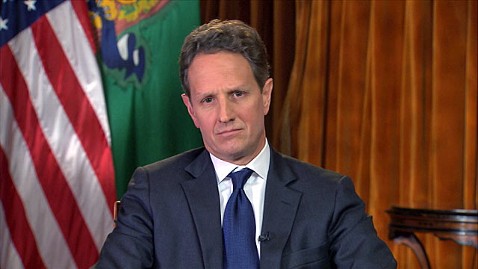DOHA, Qatar (AP) — The United States on Monday challenged China's view of how to split the burden of curbing carbon emissions, saying the rich-poor divide in past climate agreements has no place in a future pact to fight global warming.
The U.S. envoy to international climate talks in Qatar, Todd Stern, said that the next climate deal must be based on "real-world" considerations, not "an ideology that says we're going to draw a line down the middle of the world."
Beijing wants to maintain a division between developed and developing nations, setting out softer emissions-cutting requirements for poorer countries. It notes that despite its roaring growth, millions of Chinese still live in poverty, and emission limits would slow the economic expansion that would improve their lot.
The climate pact is one of the key issues under discussion at the United Nations-led talks, which have entered their second week. Last year, governments agreed it should be adopted by 2015 and take effect five years later. The U.S. didn't join the only binding emissions agreement to date, the 1997 Kyoto Protocol, because it only covered industrialized nations and not major developing countries like India and China, which is now the world's biggest carbon emitter.
"It's going to be an enormously challenging, and I think enormously important, task to get this agreement right," Stern said.
The dispute will not be resolved in Doha, where negotiators are focusing on side issues including aid to help poor countries shift to renewable energy and protect themselves from rising sea levels and other effects of global warming.
They also plan to extend the Kyoto agreement, which expires this year, until a new treaty is in place. But several nations including Japan and New Zealand don't want to be part of the extension, meaning it will only cover European countries and Australia, which account for less than 15 percent of global emissions.
Even that has been complicated by disputes over whether emissions allowances granted to Poland and other eastern European countries to offset the early economic fallout after the collapse of communism should carry over into the second phase.
U.N. climate chief Christiana Figueres told reporters that people shouldn't expect the talks to yield success overnight because they deal with "a complete transformation of the economic structure of the world" — a shift from fossil fuels to renewable energy.
"What gives me frustration is the fact that we are very far behind what science tells us we should be doing," she said. "What gives me hope is the fact that ... over the past two to three years, this process has had more progress than it did in the past 10."
EU climate commissioner Connie Hedegaard said she would raise a host of side issues at a round-table discussion with environment ministers this week, including how to reduce subsidies for fossil fuels. Even though the G-20 group of industrialized and emerging nations called for the phasing-out of such subsidies already in 2009, the International Energy Agency recently said they grew 30 percent last year to $523 billion, primarily due to increases in the Middle East and Africa.
"It has been discussed for three years or more," Hedegaard said. "Now we need to start the phasing out."
In addition to the fuel subsidies in developing countries, rich nations in 2011 gave more than $58 billion in tax breaks and other production subsidies to oil and coal companies, according to a report Monday by Oil Change International, an advocacy group for clean energy. The U.S. figure was $13 billion.
Stern said that President Barack Obama has pushed for reducing fossil fuel subsidies domestically and internationally.
"It's difficult in other countries and it's difficult at home to carry it forward because there are a lot of entrenched interests," he said.
While he highlighted U.S. initiatives undertaken during Obama's first term — such as sharply increasing fuel efficiency standards for cars and trucks and investing in green energy — Stern noted that more ambitious climate legislation had stalled in Congress and that shifts in the U.S. climate position should not be expected following Obama's re-election.
"I don't know if I would think about this in terms of a different tone here," he said. "The U.S. has done quite significant things in the president's first four years."
Climate talks are scheduled to end on Friday.










